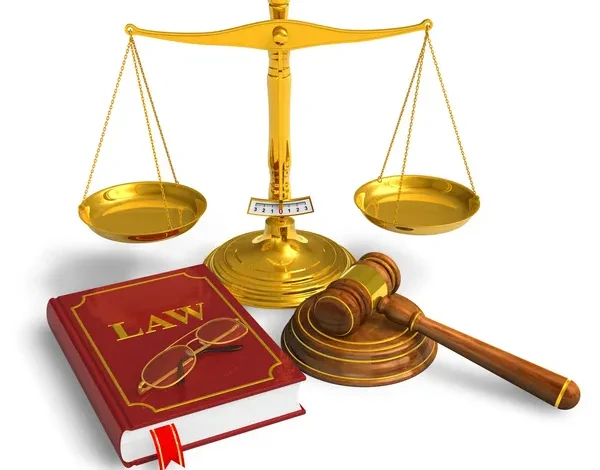Image Rights in Nigeria: Why Your Face Is the New Gold in the Digital Age
How Nigeria can protect image rights in the digital era and unlock the full potential of celebrity commercialization.

In today’s digital age, image rights in Nigeria are becoming a big deal, not just for celebrities, but for everyday people too. Whether it’s your face, your voice, or even a catchphrase you’ve made popular, your identity has value. And in many cases, that value can be turned into serious money.
From Nollywood stars to musicians, athletes, and influencers, personal identity has become one of the most powerful tools for making money. But here’s the challenge: while image rights are growing in importance, Nigeria’s laws haven’t fully caught up.
This article explores what image rights mean, how they’re protected under Nigerian law, how celebrities are cashing in, and what needs to change to give everyone better protection.
Why Image Rights Matter in Nigeria
Image rights aren’t just about vanity; they’re about value. For public figures, their likeness is part of their brand. And brands pay heavily for that value.
- Back in 2013, singer Iyanya signed a $350,000 endorsement deal with Zinox Computers.
- In 2021, reality TV star Erica Nlewedim became a brand ambassador for Partner Mobile Nigeria and Swarovski in multimillion-naira deals.
These examples show just how powerful a person’s image can be. For companies, it’s about tapping into a celebrity’s influence to boost sales. For celebrities, it’s about turning fame into long-term wealth.
But it doesn’t stop with celebrities. Every Nigerian has image rights. The difference is that public figures are usually in a stronger position to prove economic loss when their image is misused.
The Legal Framework for Image Rights in Nigeria
Unlike some countries that have a specific law on image rights, Nigeria doesn’t yet have a single statute that covers it all. Instead, protection comes through a mix of existing laws.
1. The Constitution
Section 37 of the 1999 Constitution guarantees the right to privacy. This extends to how your image is used and gives you some control over whether others can share or profit from it.
2. Data Protection Act 2023
The new Act is particularly important in today’s digital world. It gives individuals control over how their personal data, including images, is collected and used. It also makes consent mandatory, meaning your image can’t just be taken or used without your approval.
3. Copyright Act
Photos, films, paintings, and sculptures fall under artistic works, which are protected by copyright law. That means if someone uses your photograph or recorded likeness without permission, you may have grounds for legal action.
4. Trade Marks Act
Celebrities often trademark names or nicknames to protect their brand. For instance, Wizkid trademarked “Star Boy,” and Omotola Jalade-Ekeinde trademarked “OMOTOLA.” This ensures others can’t profit from their brand identity.
5. Cybercrimes (Prohibition and Prevention) Act
This law tackles digital misuse of images, names, or trademarks. It’s especially useful against online impersonation, fake endorsements, or the unauthorized sale of images.
The Business of Image Rights
Image rights are now a serious money-maker. Endorsements, licensing, and even trademarked catchphrases can bring in millions.
- Kylie Jenner once signed a $1 million deal with Puma.
- Derrick Rose, an NBA player, secured a staggering $260 million contract with Adidas.
- Cardi B went as far as trademarking her famous “Okrrr” to control its commercial use.
In Nigeria, the same trend is growing fast. Brands are investing heavily in celebrities and influencers to connect with audiences.
But this growth comes with disputes. For example, Rihanna sued Topshop after they sold t-shirts featuring her image without her permission. Similarly, actor Richard Mofe Damijo (RMD) sued Jumia for using his picture in online marketing without approval. These cases prove just how crucial image rights protection has become.
How Nigeria Can Strengthen Image Rights
To keep up with global standards, Nigeria needs to do more. Here are a few key steps:
- Pass a Specific Image Rights Law
A clear, dedicated law would remove the current legal gray areas and provide stronger remedies for violations. - Raise Awareness
Celebrities, influencers, and even regular Nigerians need to understand their rights. Many don’t realize how powerful (and valuable) their likeness is. - Improve Enforcement
Legal processes should be faster and penalties tougher to deter violations. Law enforcement agencies also need better training to handle such cases. - Work with Industry Players
Government, brands, and rights holders should collaborate on industry standards to ensure image use is fair and transparent.
Conclusion
In today’s digital-first world, your image is more than just a reflection; it’s an asset. Image rights in Nigeria carry not just financial value but also a deeper issue of personal dignity. While celebrities are already cashing in, ordinary Nigerians deserve the same protection from misuse.
To get there, Nigeria needs comprehensive reforms, better enforcement, and stronger awareness. Protecting image rights is more than a legal requirement; it’s about respecting human identity in an era where personal image has become currency.




